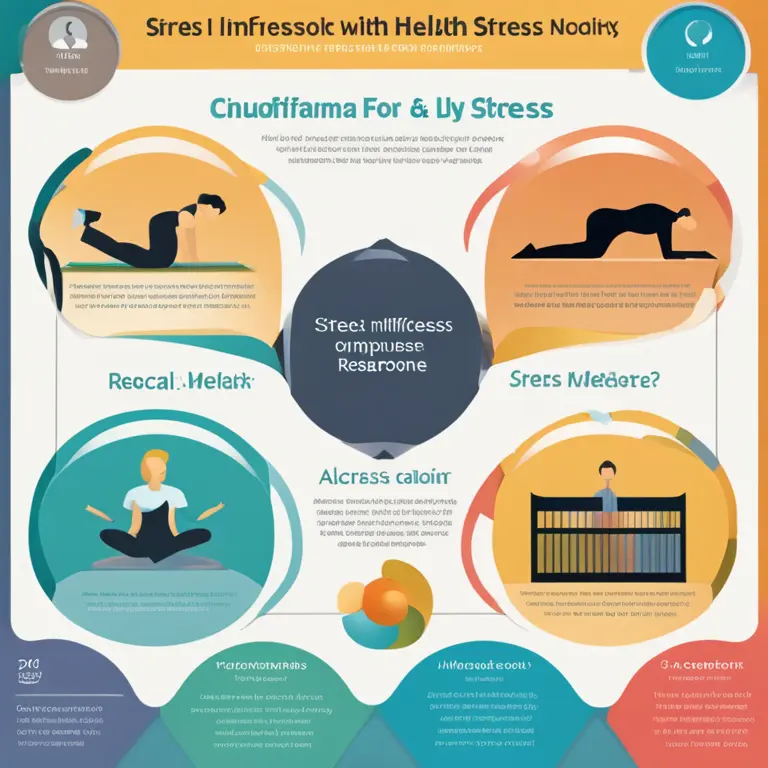
Mindfulness Meditation: Easing Health Anxiety
Discover the benefits of mindfulness meditation in managing health anxiety. Learn techniques to calm the mind and foster well-being in this informative article.
article by Hina Kurosawa
Introduction to Mindfulness and Health Anxiety
Meditation and mindfulness have surged in popularity over recent years, with a growing body of research suggesting a range of health benefits. Health anxiety—persistent worries about one's health—can often lead to significant distress. Mindfulness meditation offers individuals a way to navigate these anxious thoughts, promoting a sense of peace and emotional resilience. By cultivating awareness and presence, individuals can learn to detach from their anxiety triggers, potentially improving their overall well-being.

The Science of Stress and Meditation
The scientific community has consistently found connections between stress, anxiety, and physical health. Chronic anxiety can trigger the body's stress response, leading to an array of health issues. Mindfulness meditation, however, counteracts this response. Studies have depicted meditation's role in downregulating the sympathetic nervous system and reducing the production of stress hormones, like cortisol. These findings underscore meditation's significance as a non-pharmacological approach to mitigating health anxiety symptoms.

Mindfulness Techniques for Anxiety Relief
Mindfulness meditation encompasses various techniques that can alleviate health anxiety. Notable among these is focused breathing—a practice where attention is gently directed to the breath, guiding the mind away from anxious thoughts. Body scanning is another technique that promotes awareness of bodily sensations, often bringing to light the physical manifestations of anxiety that can be addressed through relaxation. Guided imagery and mantra repetition also serve as valuable tools for centering the mind and fostering a calm state.

Integrating Meditation Into Daily Life
The integration of mindfulness into daily routines can be transformative for those dealing with health anxiety. Consistency is key; even brief sessions can contribute to anxiety reduction. Starting or ending the day with a ten-minute meditation can set a harmonious tone or facilitate unwinding. Additionally, momentary mindfulness practices can be used in response to acute stressors, providing immediate relief by refocusing attention and calming the nervous system.

Overcoming Challenges in Mindfulness Practice
Initiating a mindfulness meditation practice can be fraught with challenges, especially for individuals coping with health anxiety. It's not uncommon to face frustration or increased anxiety in the early stages. However, these hurdles can be overcome with patience and persistence. Practitioners are encouraged to approach their experience with gentleness and to regard any difficulties as part of the learning process that enhances their ability to cope with anxiety.
Future Outlook on Mindfulness for Health
As we progress into the 2020s, mindfulness meditation is poised to play an increasingly significant role in mental health management. With a rising prevalence of health anxiety, particularly in the aftermath of global health crises, mindfulness provides a beacon of hope. With continued research and the development of mindfulness-based interventions, the potential for positively impacting mental health practices and individual lives is unmatched. Embracing this practice may lead to profound changes in the way health anxiety is understood and treated.
Published: 1/18/2024
Modified: 1/18/2024
More predictions
Come back here soon to learn more about yourself and your future


Easing Anxiety Through Mindful Meditation
Discover how mindful meditation can be a serene gateway to relieving anxiety, fostering a peaceful mind, and promoting overall well-being.


Exploring Meditation in Psychological Practice
Delve into the psychological perspective on meditation, its benefits, and applications in modern mental health practices.


Best Meditation Techniques for Brain Health
Discover effective meditation practices to enhance cognitive functions and maintain a healthy brain.